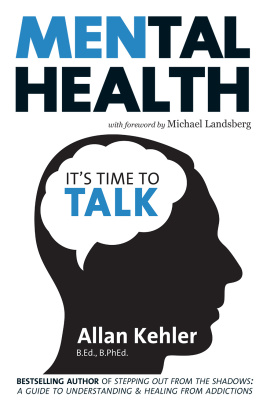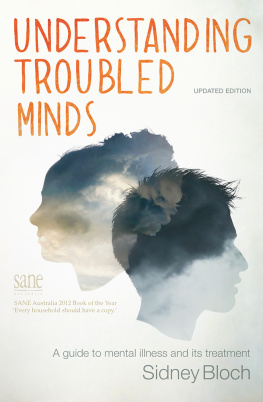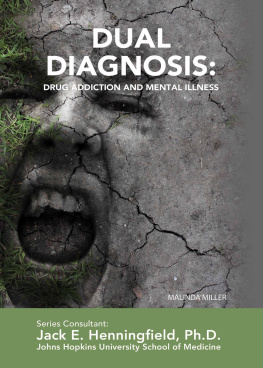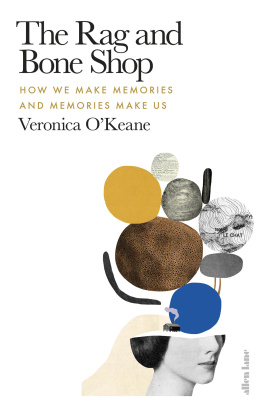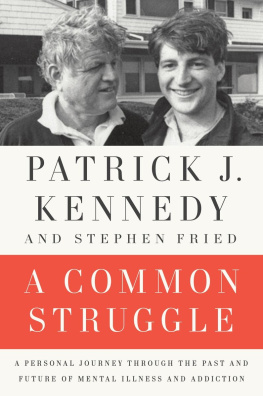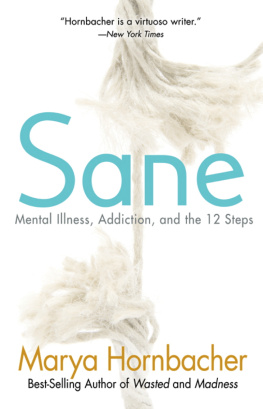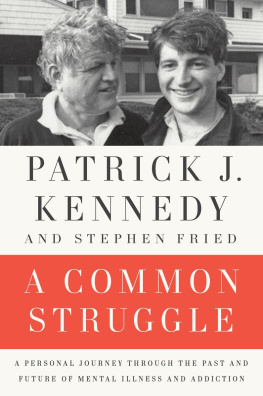Mierlak MD - Twelve Cases: A Psychiatrist’s True Stories of Mental Illness and Addiction [and Other Human Predispositions]
Here you can read online Mierlak MD - Twelve Cases: A Psychiatrist’s True Stories of Mental Illness and Addiction [and Other Human Predispositions] full text of the book (entire story) in english for free. Download pdf and epub, get meaning, cover and reviews about this ebook. year: 2018, publisher: Luminare Press, genre: Detective and thriller. Description of the work, (preface) as well as reviews are available. Best literature library LitArk.com created for fans of good reading and offers a wide selection of genres:
Romance novel
Science fiction
Adventure
Detective
Science
History
Home and family
Prose
Art
Politics
Computer
Non-fiction
Religion
Business
Children
Humor
Choose a favorite category and find really read worthwhile books. Enjoy immersion in the world of imagination, feel the emotions of the characters or learn something new for yourself, make an fascinating discovery.
- Book:Twelve Cases: A Psychiatrist’s True Stories of Mental Illness and Addiction [and Other Human Predispositions]
- Author:
- Publisher:Luminare Press
- Genre:
- Year:2018
- Rating:5 / 5
- Favourites:Add to favourites
- Your mark:
- 100
- 1
- 2
- 3
- 4
- 5
Twelve Cases: A Psychiatrist’s True Stories of Mental Illness and Addiction [and Other Human Predispositions]: summary, description and annotation
We offer to read an annotation, description, summary or preface (depends on what the author of the book "Twelve Cases: A Psychiatrist’s True Stories of Mental Illness and Addiction [and Other Human Predispositions]" wrote himself). If you haven't found the necessary information about the book — write in the comments, we will try to find it.
Mierlak MD: author's other books
Who wrote Twelve Cases: A Psychiatrist’s True Stories of Mental Illness and Addiction [and Other Human Predispositions]? Find out the surname, the name of the author of the book and a list of all author's works by series.
Twelve Cases: A Psychiatrist’s True Stories of Mental Illness and Addiction [and Other Human Predispositions] — read online for free the complete book (whole text) full work
Below is the text of the book, divided by pages. System saving the place of the last page read, allows you to conveniently read the book "Twelve Cases: A Psychiatrist’s True Stories of Mental Illness and Addiction [and Other Human Predispositions]" online for free, without having to search again every time where you left off. Put a bookmark, and you can go to the page where you finished reading at any time.
Font size:
Interval:
Bookmark:

AUTHORS NOTE
The following cases are true, but to protect the individuals involved, names, dates, locations, and other identifying details have been scrupulously changed. It is important to note that no claim is made as to how psychiatric disorders ought to be treated, and none should be taken from the specific treatments mentioned.
Earlier versions of
What is the Heroin? and The Worst Call in the World previously published on Huffington Post.
TWELVE CASES
A Psychiatrists True Stories of Mental Illness and Addiction and
Other Human Predispositions
2018 Daniel Mierlak, MD, PhD
All rights reserved. This book or any portion thereof may not be reproduced or used in any manner whatsoever without the express written permission of the publisher, except for the use of brief quotations in a book review.
Printed in the United States of America
Cover Design by Claire Flint Last
Luminare Press
442 Charnelton St.
Eugene, OR 97401
www.luminarepress.com
LCCN: 2018947198
ISBN: 978-1-944733-81-0
For Bronwyn, Deryn, and Donovan
Everything has been figured out,
except how to live.
Jean-Paul Sartre
Table of Contents
Preface
Judging from the questions Ive gotten over the years when someone new learns Im a psychiatrist, many people seem genuinely curious about what goes on inside the office of a shrink. And why shouldnt they be curious? The capacity of human beings to surprise, and to shock, is impressive. The media is full of reports. Perhaps youve noticed stories recently of unseemly behavior from public figures? Or how about these examples much closer to homereflect on your own fantasy life for a few minutes, or, better yet, behaviors that you keep secret, or wish you could. If youre honest youll have to agree with mewe are all capable of the provocative.
Theres no question that psychiatrists do some of their work with patients out on the darker edges of the psyche. Who wouldnt be interested to hear about that exotic landscape? The stranger versions of human experience are just plain fascinating to so many of us. And even if you claim disinterest in matters of psychopathology, even if the lurid is not your particular cup of tea, at the very least it can reassure to learn that some people out there have more issues than you do. I completely understand these brands of curiosityafter all, I decided to pursue psychiatry as a specialty nearly thirty years ago.
But psychiatry is not like other medical disciplines. The sensitive nature of the symptoms we delveinvolving as they do our thoughts, emotions, and behaviorssets a higher bar for confidentiality. Because of this, access to authentic accounts of psychiatric practice, for the general audience, is harder to come by. Yet, flying in the face of this thoughtful discretion, there seems to be no shortage of popular culture stereotypes of psychiatrists and psychiatric patientsin films, television, and fiction writing. Like all caricatures, these depictions lack nuance and are easy prey for the cynical to belittle a couple of already beleaguered groups.
You would think that so long as I kept identity secret Id be in a good position to satisfy the inquiring mind about the private conversations I have with patients, and set the record straight on biased misconceptions. Despite a career of it though, I must admit, it has not been easy to explain my work. Ive had trouble when asked to describe what the practice of psychiatry is really like. My responses have been too often generic and fail to hit the mark, as this exchange with my kids, one of many attempted, demonstrates vividly:
I help people with their problems by talking to them, and sometimes giving them medicine.
What kinda problems, Dad?...What do the medicines do?...You talk to em and they get better?...You get paid for just talking to people!?...
OK, so maybe the profession is, legitimately, somewhat opaque.
On the other hand I may be taking the wrong approach to try to summarize psychiatryit seems an inherently lame exercise. As Ive thought about it, there is probably a simple reason blanket statements about psychiatry dont work. Its the same reason blanket statements about romantic comedies dont work. People are interested in stories with characters and action , not formulas. And in psychiatry, as Ive come to see, its the story of the treatment the meandering journey of collaboration between patient and doctorthat lies at the very center of the curiosity which yearns to be a fly on the shrinks wall.
Therefore, I present the following twelve cases as my answer to what its like to be a psychiatrist. Think of each as a stroll through a single gallery of a very large museum. In these stories I take you away from fictional, stigmatized renditions of psychiatry and instead drop you into actual hospital wards, into my private office, and in one instance, into a house call. The way psychosis, mania, and depression unfoldthe particulars of four-point restraint, electroconvulsive therapy, and overnight callthe management of suicidality and homicidalityand the wild horse of addictive disordersare some of the circumstances that await you.
Strange as these real accounts read, the underlying struggles they reveal are familiar. At heart these are stories of individuals who grapple with their demonssomething that I suspect can resonate with us allremember my little thought experiment about your own fantasies and behaviors? You will find a part of yourself somewhere in these tales.
On a personal note, I sometimes get asked how the work with psychiatric patients has affected me. I trust some of the unusual challenges I have faced will come through in the cases described in this volume. You can decide for yourself how well I negotiated them. The truth is, the unexpected plays such a central role in psychiatric practice that its impossible to succinctly sum up the impact of a career in psychiatry on oneself. But Ill try anyway.
If theres one thing Ive learned from working with patients its this: as much as we think we know someone, ourselves included, theres always more.
So now, for those interested in a rare glimpse, if I may open the door, please follow me inside

Case One
First, Do No Harm
A popular storytellers device is to start at the beginning, and to the extent this collection traverses an arc, it fits that our first case is almost literally the first case of my career as psychiatrist. It occurred during the initial weeks of residency training and takes us deep into the psychiatric hospital.
Anyone who remembers the anxiety of starting a new job, or a new school, or a new anything, will realize some familiarity in this account. As for the rest of the details I hope few find recognition, for the action described concerns paranoia and violence. That this case unfolds on a locked inpatient psychiatric unit is aptcertain impulses are best managed in protected spaces.
The therapeutic relationship between doctor and patient is where the work of psychiatry takes place.
It is prudent for the psychiatrist to remember
that patients can form profound attachments
within that space.
It all started with a slap in the face.
July 1990. I was a freshly minted MD, less than two weeks into internship, the first year of residency training for all physicians. Psychiatry had a four-year residency, and the internship year consisted of rotations on the hospital services for medicine, neurology, and psychiatry. I had drawn a schedule that started with six weeks of inpatient psychiatry. Tactically speaking, this was bad luck. In a year that would crush my notion of endurance with brutal stretches of overnight call and endless tasks on very sick patients, the psychiatry rotation was considered vacation time. Case in point: there was no overnight duty for interns on psychiatry. Not only did I lose the option to have a soft rotation later in the year, even worse, I would start medicine six weeks behind all my colleagues. They would be weathered, and I wouldnt have developed any calluses yet.
Font size:
Interval:
Bookmark:
Similar books «Twelve Cases: A Psychiatrist’s True Stories of Mental Illness and Addiction [and Other Human Predispositions]»
Look at similar books to Twelve Cases: A Psychiatrist’s True Stories of Mental Illness and Addiction [and Other Human Predispositions]. We have selected literature similar in name and meaning in the hope of providing readers with more options to find new, interesting, not yet read works.
Discussion, reviews of the book Twelve Cases: A Psychiatrist’s True Stories of Mental Illness and Addiction [and Other Human Predispositions] and just readers' own opinions. Leave your comments, write what you think about the work, its meaning or the main characters. Specify what exactly you liked and what you didn't like, and why you think so.

![Mierlak MD Twelve Cases: A Psychiatrist’s True Stories of Mental Illness and Addiction [and Other Human Predispositions]](/uploads/posts/book/285613/thumbs/mierlak-md-twelve-cases-a-psychiatrist-s-true.jpg)
